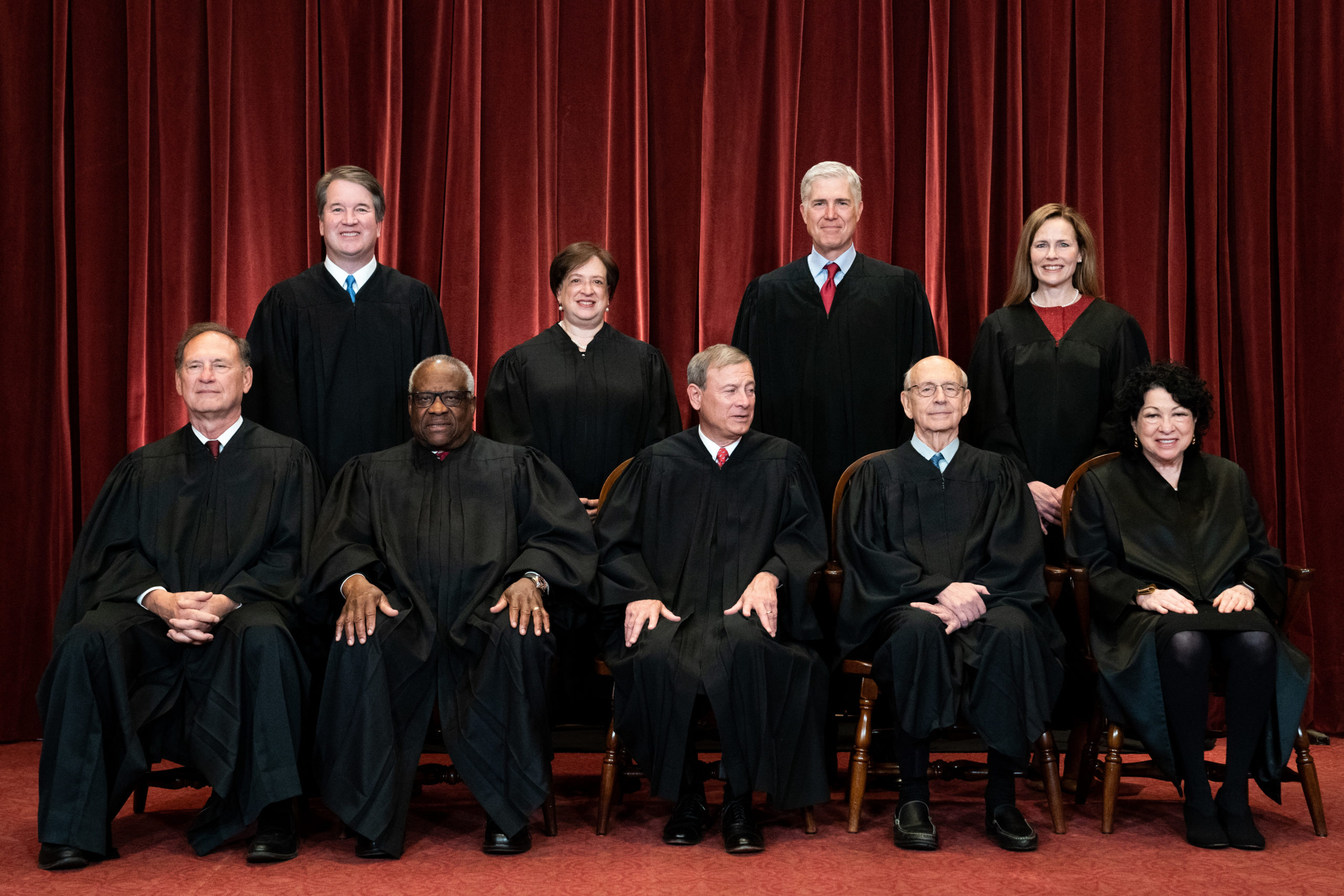The Supreme Court’s ruling Thursday in New York State Rifle & Pistol Association v. Bruen sets a precedent that could be used in challenges against other similar “may issue” state gun laws, according to legal experts.
The Court sided with the plaintiffs in a 6-3 decision, with Justice Clarence Thomas writing the majority opinion. It ruled New York’s regulation requiring “proper cause” to obtain a license to conceal carry a handgun violates the Fourteenth Amendment by prohibiting a law-abiding citizen from bearing arms for self-defense purposes.
In “may issue” states, authorities “have discretion to deny concealed-carry licenses even when the applicant satisfies the statutory criteria, usually because the applicant has not demonstrated cause or suitability for the relevant license,” Thomas wrote in the opinion. In “shall issue” states, officials typically do not have that same discretion and must provide a qualified and properly-documented applicant with the relevant permit, according to WWL-TV.

The Justices of the Supreme Court of the United States. (Photo by Erin Schaff-Pool/ Getty Images)
Thursday’s ruling does “indeed set a precedent that will apply to other state statutes with ‘may issue’ language comparable to New York’s,” Robert Tortoriello, an adjunct professor of political science at Columbia University who practiced law for a top New York City firm for over 40 years, told the Daily Caller.
Tortoriello said he expects legal challenges of “may issue” statutes in California, Hawaii, Maryland, Massachusetts, New Jersey and the District of Columbia. (RELATED: ‘I’m Prepared To Go Back To Muskets’: New York Gov. Kathy Hochul Rages Over SCOTUS Overturning Concealed Carry Law)
With its ruling, the Supreme Court established that “the right of a law-abiding citizen to bear arms cannot be subject to essentially unfettered governmental discretion,” Tortoriello said. More narrowly-tailored and objective restrictions “reasonably related to compelling governmental interests” may survive potential challenges, Tortoriello said. (RELATED: Here’s Why The Supreme Court Could Be Delaying Its Abortion Decision)
However, he noted that the New York statute struck down by the Supreme Court is unique from other “may issue” states. “So few states have taken a statutory approach comparable to that in New York; no other state provides for the issuance of permits to carry guns only following some subjective assessment of whether a person ‘needs’ to do so,” he said.
Josh Blackman, a professor at the South Texas College of Law Houston with expertise in the Supreme Court and constitutional law, also agreed the ruling would have implications for “may issue” guns laws in other states.
“Going forward, states will be required to adopt ‘shall-issue’ regimes. States can still require background checks and other tests, but cannot use a discretionary licensing regime,” Blackman said to the Caller. (RELATED: Biden Warns Of A ‘Mini Revolution’ If SCOTUS Overturns Roe)
He estimated that “California, New Jersey, Maryland, Hawaii” and several other states will have to “reconsider their laws” pertaining to concealed carry permits. To work within the new legal landscape, some states “will impose onerous training requirements to obtain a carry license, and designate wide swaths of society as a ‘sensitive place,'” he predicted.
“The states will have to move to what’s called a ‘shall-issue’ rather than ‘may-issue’ system, meaning that you get to apply for it, you don’t need to have personal, specific needs, like I was threatened or I’m a security guard,” the president of the Brennan Center for Justice at NYU Law, Michael Waldman, stated to Politico.
Waldman also said that state legislators might attempt to impose limits on the places where individuals can carry concealed firearms, Politico reported. He predicted that gun rights groups may challenge other gun-related regulations in the future.
“It will be very hard for states and cities and Congress to know what is allowed right now, what kind of regulation or firearms is even constitutional? The court did not offer clarity here in terms of the New York law,” Waldman told Politico.


